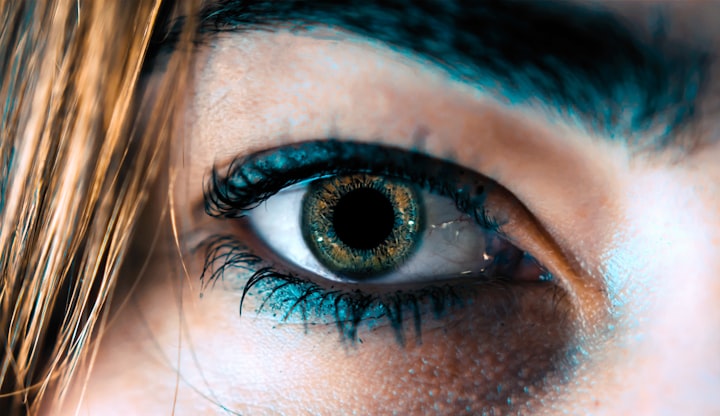How to Lose Weight Without Exercise in 30 Days
Simple Changes to Your Diet and Lifestyle for Healthy Weight Loss

Losing weight is a common goal for many people. However, not everyone has the time, resources, or ability to incorporate regular exercise into their routine. Fortunately, there are still effective ways to lose weight without exercise. In this article, we will discuss how to lose weight without exercise in 30 days.
Understanding Your Body's Energy Balance
Before we dive into specific strategies for losing weight without exercise, it is important to understand how your body's energy balance works. Your body's energy balance refers to the relationship between the calories you consume and the calories your body uses. If you consume more calories than your body uses, you will gain weight. Conversely, if you consume fewer calories than your body uses, you will lose weight.
It is important to note that the energy balance equation is not as simple as just consuming fewer calories than your body uses. There are other factors that play a role in your body's energy balance, such as genetics, metabolism, and the types of food you eat. For example, some foods are more calorie-dense and have a higher calorie content per serving than others, while some types of food are more easily stored as fat in your body than others.
It is also important to consider that your body uses energy in various ways, including basic metabolic processes, physical activity, and digestion. The number of calories your body uses each day can vary based on factors such as your age, weight, and level of physical activity.
To effectively manage your body's energy balance, it is important to focus on both the quantity and quality of the food you eat, as well as the amount of physical activity you engage in. This can include making healthy food choices, reducing portion sizes, and engaging in regular physical activity to increase the number of calories your body uses each day.
Control Your Caloric Intake
One of the most effective ways to lose weight without exercise is to control your caloric intake. This means that you need to be mindful of the amount and types of food you eat. You can achieve this by:
Eating a healthy and balanced diet
Eating a healthy and balanced diet is an essential component of weight loss and maintaining a healthy weight. A healthy diet should include a variety of foods from different food groups, including:
Fruits and vegetables: Aim to eat at least 5 servings of fruits and vegetables per day. They are low in calories and high in fiber, vitamins, and minerals, making them an important part of a healthy diet.
Whole grains: Choose whole-grain bread, pasta, and cereal instead of processed, refined grains. Whole grains are a good source of fiber, which can help you feel full and reduce the number of calories you consume.
Lean protein: Include lean protein in your diet, such as poultry, fish, beans, and tofu. Protein can help you feel full and reduce the number of calories you consume.
Healthy fats: Include healthy fats in your diet, such as olive oil, avocado, and nuts. These foods are high in nutrients and can help you feel full and reduce the number of calories you consume.
It is also important to limit your intake of unhealthy foods, such as processed foods, sugary drinks, and foods high in added sugars and unhealthy fats. By eating a healthy and balanced diet, you can control your caloric intake and achieve your weight loss goals without exercise.
Avoiding high-calorie, processed foods
Avoiding high-calorie, processed foods is an important aspect of controlling your caloric intake and losing weight without exercise. Processed foods are often high in calories, sugar, unhealthy fats, and artificial ingredients, and they can contribute to weight gain and health problems.
Examples of high-calorie, processed foods include:
Fast food: Fast food is often high in calories, unhealthy fats, and sodium, and it is typically low in nutrients.
Sweets and sugary drinks: Foods high in added sugars, such as candy, cakes, and sugary drinks, are often high in calories and low in nutrients.
Processed snacks: Processed snacks, such as chips, crackers, and snack bars, are often high in calories, unhealthy fats, and added sugars, and they can contribute to weight gain.
By avoiding high-calorie, processed foods, you can reduce the number of calories you consume, which can help you lose weight and maintain a healthy weight for the long term. Instead, opt for healthier, whole-food options that are low in calories and high in nutrients, such as fruits, vegetables, whole grains, lean protein, and healthy fats.
Keeping track of your portion sizes
Keeping track of your portion sizes is an effective way to control your caloric intake and lose weight without exercise. Portion sizes refer to the amount of food you eat at one time, and they can greatly impact your caloric intake and weight.
Here are some tips to help you keep track of your portion sizes:
Use smaller plates: Using smaller plates can help you eat smaller portions and reduce the number of calories you consume.
Measure your food: Measuring your food, such as using a food scale, can help you accurately determine your portion sizes and reduce the number of calories you consume.
Read food labels: Food labels can provide information about serving sizes, which can help you determine appropriate portion sizes.
Be mindful when eating: Pay attention to your hunger and fullness signals, and stop eating when you feel satisfied, not stuffed.
By keeping track of your portion sizes, you can control your caloric intake, reduce the number of calories you consume, and achieve your weight loss goals without exercise.
Avoiding late-night snacking
Avoiding late-night snacking is another way to control your caloric intake and lose weight without exercise. Late-night snacking can lead to overeating and consuming extra calories, which can contribute to weight gain.
Here are some tips to help you avoid late-night snacking:
Plan your meals and snacks: Plan your meals and snacks ahead of time, so you are less likely to reach for unhealthy, high-calorie foods when you are hungry.
Drink water: Drink water before bedtime to help you feel full and reduce the urge to snack.
Avoid keeping unhealthy foods in your house: Don't keep unhealthy, high-calorie foods in your house, so you are less likely to reach for them when you are hungry.
Keep yourself occupied: Find activities that keep you occupied and away from food, such as reading a book, watching a movie, or taking a relaxing bath.
By avoiding late-night snacking, you can reduce the number of calories you consume and achieve your weight loss goals without exercise.
Increase Your Protein Intake
Increasing your protein intake is a strategy that can help you lose weight without exercise. Protein is a macronutrient that is essential for good health, and it can help you feel full, reduce cravings, and lose weight.
Here are some tips to help you increase your protein intake:
Choose lean protein sources: Opt for lean protein sources, such as chicken, fish, turkey, beans, and tofu, that are low in calories and high in nutrients.
Add protein to your meals and snacks: Incorporate protein into your meals and snacks, such as adding Greek yogurt to your smoothies or nuts to your salad.
Make protein the focus of your meals: Make protein the focus of your meals, such as having a salad with chicken or a grilled fish with vegetables.
Try a high-protein diet: Consider trying a high-protein diet, which can help you lose weight and improve your health by reducing your caloric intake and increasing your protein intake.
By increasing your protein intake, you can reduce the number of calories you consume, increase feelings of fullness, and achieve your weight loss goals without exercise.
Drinking Plenty of Water
Drinking plenty of water can also help you control your caloric intake and lose weight without exercise. Water is a natural appetite suppressant, and it can help you feel full and reduce the number of calories you consume. Additionally, drinking water can boost your metabolism, which can help you burn more calories even when you are at rest. Aim to drink at least 8 glasses of water per day, and avoid sugary drinks that are high in calories.
Get Enough Sleep
Getting enough sleep is also important for controlling your caloric intake and losing weight without exercise. When you are sleep-deprived, you are more likely to crave sugary and high-calorie foods, and you are less likely to make healthy food choices. Aim to get 7-9 hours of sleep each night, and make sure to establish a consistent sleep schedule to help regulate your metabolism.
In conclusion, losing weight without exercise requires a combination of dietary changes and lifestyle modifications. By controlling your caloric intake, increasing your protein intake, drinking plenty of water, and getting enough sleep, you can achieve your weight loss goals and maintain a healthy weight for the long term.
Incorporating more protein into your diet can help you lose weight without exercise. Protein is more satisfying than carbohydrates or fat, which means that you are less likely to overeat. Additionally, protein takes longer to digest than other macronutrients, which means that you will feel full for longer periods of time. Good sources of protein include lean meats, poultry, fish, eggs, and dairy products.
Stay Hydrated
Drinking plenty of water can also help you lose weight without exercise. Water helps flush toxins out of your body, improves your digestion, and can even boost your metabolism. Additionally, drinking water before meals can help you feel full, which can reduce your overall caloric intake.
Get Adequate Sleep
Getting adequate sleep is important for overall health, including weight management. When you don't get enough sleep, your body releases the hormone cortisol, which can cause you to feel hungry even when you are not. Additionally, lack of sleep can also interfere with your metabolism, which can make it more difficult for you to lose weight. Aim for 7-9 hours of sleep each night to support your weight loss goals.
Manage Your Stress Levels
Stress can also interfere with weight loss, as stress can cause your body to release cortisol, which can cause you to feel hungry and crave high-calorie, unhealthy foods. Try to find healthy ways to manage stress, such as practicing mindfulness, meditating, or engaging in physical activity.
Conclusion
In conclusion, losing weight without exercise is possible with a combination of a healthy diet, hydration, adequate sleep, and stress management. By incorporating these strategies into your daily routine, you can lose weight and achieve your weight loss goals in 30 days.





Comments
There are no comments for this story
Be the first to respond and start the conversation.